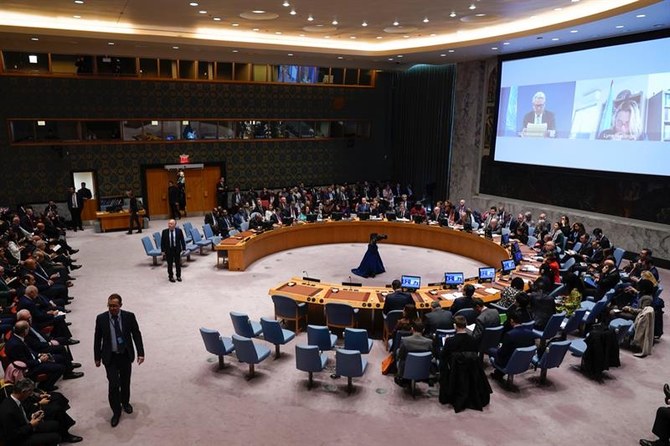In a recurring pattern of inaction, the UN Security Council (UNSC) has once again faltered, raising concerns about its ability to fulfill its mandate of maintaining international peace and security. The most recent failure occurred as the council refused to adopt a Brazilian resolution calling for a “humanitarian pause” in the Israel-Hamas conflict, further deepening the ongoing crisis in the Middle East. The United States’ use of its veto power to block the resolution, despite support from 12 UNSC members, including China and France, has drawn significant criticism. Ambassador Linda Thomas-Greenfield justified this decision by citing the need to let diplomatic efforts led by the US play out, coinciding with President Joe Biden’s trip to Israel.
The Stalemate in the Middle East:
Brazilian Foreign Minister Mauro Vieira, currently serving as the president of the Security Council, highlighted the long-standing issue during an open debate on the Middle East. He lamented that the council has been unable to pass a resolution on the situation in the region since 2016. This prolonged stalemate is exacerbating the humanitarian crisis in the Middle East and has implications for global peace and security.
Paralyzed by Veto Powers:
The use of veto power by the five permanent members of the UNSC has been a significant obstacle to its work throughout its history. During the Cold War era, Moscow frequently employed its veto, primarily due to the dominance of the US within the council. However, the US has also frequently wielded its veto power, especially concerning issues related to Israel and the Middle East, with 88 vetoes to date. In comparison, China has used its veto 19 times, while France and the UK have not exercised this power since 1989. The gridlock caused by these great powers’ competing interests has left the UNSC incapable of fulfilling its role in managing conflicts and crises.
Seeking Solutions Beyond the Security Council:
The recurrent deadlock within the UNSC has prompted attempts to address this issue. The Uniting for Peace initiative, established when the UN General Assembly (UNGA) adopted Resolution 377 in 1950, provides an alternative route when the UNSC is unable to act due to lack of unanimity among its permanent members. This resolution empowers the UNGA to consider matters immediately and make recommendations for collective measures, including the use of armed force if necessary, to maintain or restore international peace and security. While such initiatives aim to circumvent the UNSC’s impotence, the ongoing disputes between major powers like the US, China, and Russia cast doubt on the UN’s ability to effectively manage conflicts and preserve global peace.
The failure of the UNSC to act in the face of international crises raises significant concerns about the effectiveness of the current international order and the prospects for multilateral cooperation. As the world faces multiple global challenges, including the Middle East conflict and the situation in Ukraine, the need for a functional UNSC is more critical than ever.
















